Macbeth – Partners of Greatness: An interview with the cast
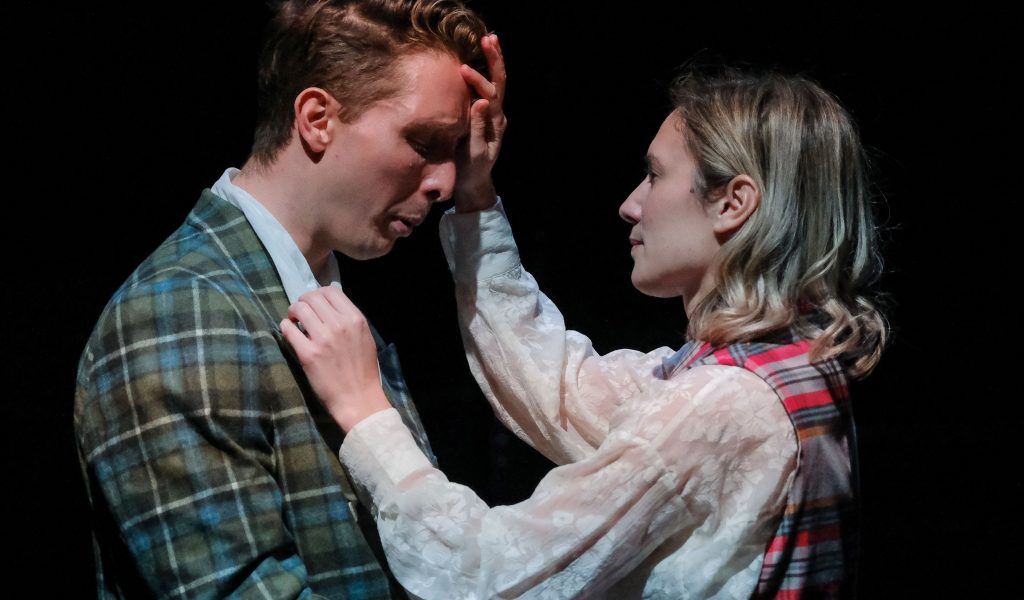
Arts and Lit editor, Manon Martini, interviews the cast of Mark Leipacher’s Macbeth – Partners of Greatness.
Multi-award-winning and critically acclaimed ensemble The Faction bring their reputation for bold, innovative reimaginings of the classics to create a dazzling distillation of Shakespeare’s fast-paced tragedy.
Performed entirely by two actors, Macbeth – Partners of Greatness presents Shakespeare’s play from the perspective of the Macbeths themselves. Manon Martini sits down with Christopher York (Macbeth) and Sophie Spreadbury (Bellona) to discuss the production and rehearsal process.
Manon Martini: The story of Macbeth has been told time and time again, what does this production add to the 400-year-old tale?
Sophie Spreadbury: Macbeth – Partners of Greatness presents Shakespeare’s play from the perspective of the Macbeths themselves and invites the audience to go behind the scenes with them into previously unexplored moments.
Christopher York: This production really leans into the given circumstances of Shakespeare’s original text- a couple grieving for the loss of their child whose world is shaken by a horror style prophecy. There are no femme fatales or ponderous relics of production’s past. Our production is non-stop, high stakes action, there genuinely isn’t room to get comfortable.
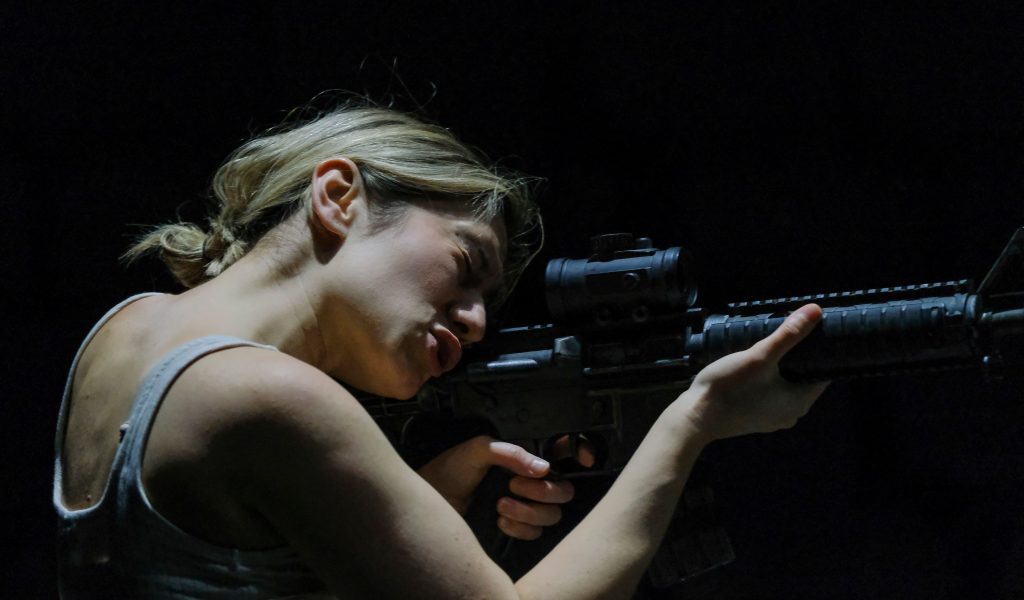
MM: Tell me about the casting process for Partners of Greatness.
CY: I’ve been a part of The Faction since 2015 and when I was offered the chance to ‘pitch’ a pairing for the show- I knew immediately I wanted to work with Sophie Spreadbury. We’ve not only acted together before, but she has also performed in my writing. There isn’t a harder working, more emotionally intuitive actor working in theatre today.
SS: I’m so grateful to Chris for inviting me in on this project. We’ve worked together many times before and the reverse casting process gave us the chance to collaborate again which I think gave us a head start in the rehearsal room and allowed us to hit the ground running.
MM: The production focuses in on the partnership between the Macbeth’s, how has your relationship as actors developed, working so closely?
CY: The production is really hard work, it’s the hardest acting experience I’ve ever had. It’s psychologically very demanding – so I think Sophie and I have developed emotional shorthands, we’ve become more empathetic to each other’s needs on stage and in the rehearsal room. It’s sort of like running a three-legged marathon together and an experience we’ll always share.
SS: The intensity of this production threw up loads of challenges for us as actors and I think navigating those together has strengthened our relationship.
MM: The Faction claims that ‘ensemble is at the heart of everything we do’. How does this
emphasis on ensemble fit into the play’s intimate focus on partnership?
CY: I suppose any rehearsal room at its best feels like a collaboration. Beyond that, the show’s genesis to a point has been about collaboration and ensemble work before we began even rehearsing the play – a lot of joint research and development went into the piece.
SS: Whether you’re an ensemble of 20 or an ensemble of 2 the same things are important – a sharing of the story telling and a trust in the people you are on stage with.
MM: What is your favorite part of the play to perform?
CY: The last scene, no question, it’s horrific and gorgeous.
SS: The final scene. It’s the end of Macbeth like you’ve never seen it before.
MM: What is the importance of performing Shakespeare in the twenty-first century?
CY: I’m a huge advocate for more new writing in theatre, especially new writing that addresses the current state of the country. When we perform Shakespeare today, we have an obligation to use its universality to unravel a bit of twenty-first-century living. For me, as a character, Macbeth is the epitome of what happens in a society where toxic masculinity is able to prevail. In the script; panic attacks, anxiety, depression – it’s all there – this play touches on our current mental health epidemic in a way I’ve never seen in previous incarnations.
SS: Whether you think it’s important or not- there’s no denying that Shakespeare’s themes are still as relevant today as they were 400 years ago.
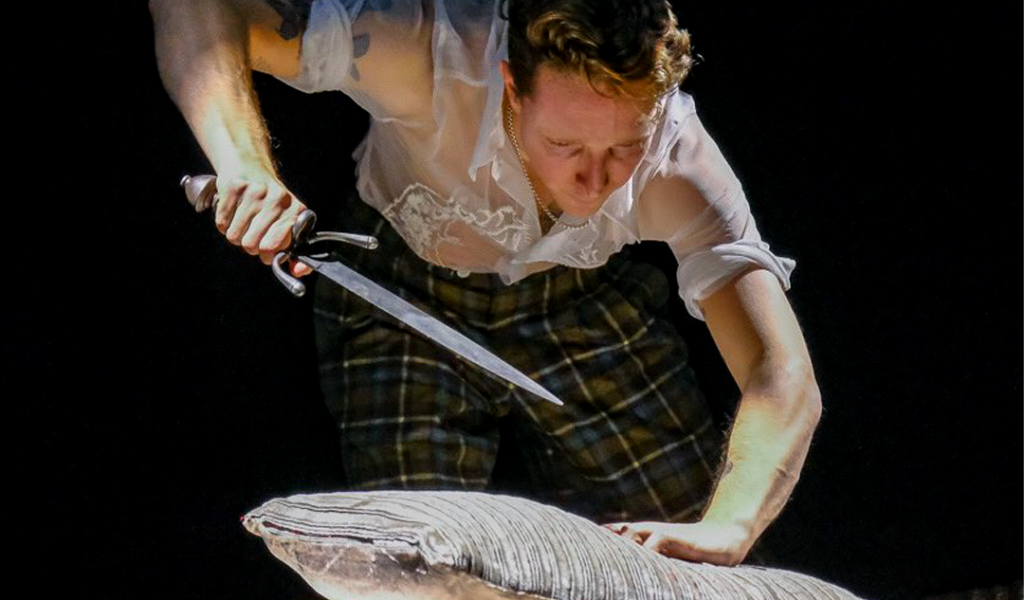
MM: How does this play negotiate some of the possible problematics of Shakespeare’s original
insofar as gender and sexuality?
CY: When I was 15 we performed Macbeth in a school production and my drama teacher, Mr Williams, made the astute observation that this play is about a subjugated woman – held back by a patriarchal society. She is forced to proverbial ‘unsex’ herself because society dictates it. Now of course there are other ways to interpret the play – but so often I see Lady Macbeth portrayed as a ‘fourth witch’ or an evil femme fatale. She is a product of her society and her grief, she is entirely understandable and sympathetic, if you don’t lean into archetypes. I hope our production demonstrates two people, who see themselves as equals – as partners.
SS: Lady Macbeth has a name in this script (Bellona) and has more of a focus in the story what with it being a two hander. We start the play with her, in her world, before we see Macbeth. In terms of the actual content of the play, that’s more complicated and something that could be discussed for hours. There’s obviously a large amount of material around traditional gender roles in the original text and that remains the same in our production.
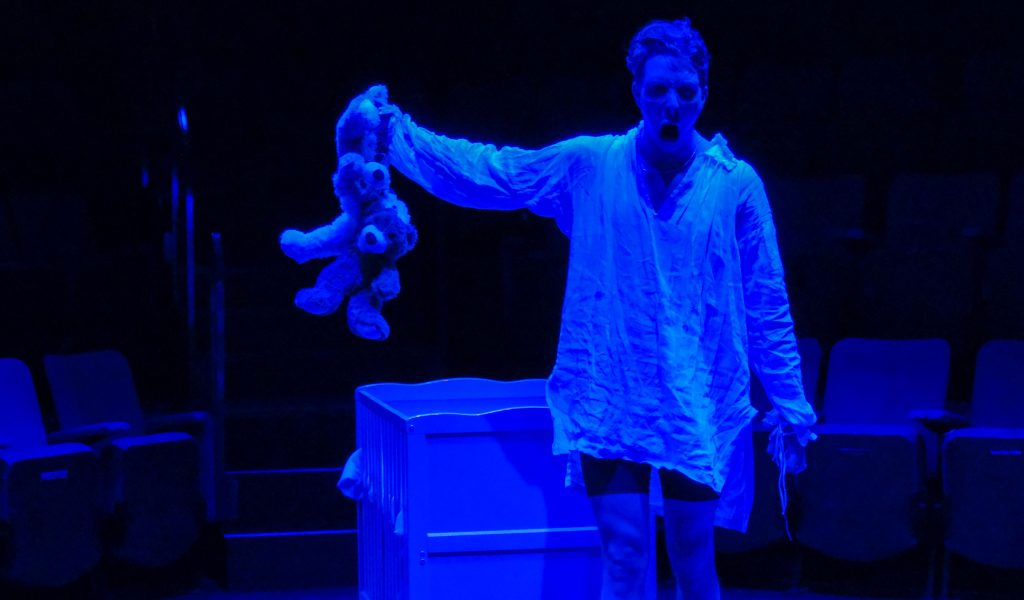
MM: What were some of the challenges you faced during rehearsals for Macbeth?
CY: It’s a lot. With two actors performing essentially the whole play, it’s a lot. A lot of lines, a lot of choreography, a lot of research, a lot of crying – it’s just a lot. It’s a really satisfying hard graft and I hope our hard work shows on stage and makes for a properly thrilling night at the theatre.
SS: This version of the play has reassigned dialogue from other characters to the Macbeths. One of the challenges in rehearsals was to make these lines feel like they never belonged to anyone else. Some of this felt completely seamless but with more famous bits of the text – the Porter’s speech for example – the challenge was not to think ‘now this is where I do the Porter’s speech’ but to really make the lines live and be at home in their new context.
MM: What is your favorite/least favorite thing about your character?
CY: I’ve been very lucky to play some really cool Shakespearean roles, they’ve always been their most successful when I don’t make judgements on the character. When I just ‘do me’ and try to portray them as humanely as possibly, that’s when things start to feel awesome. So my favourite and least favourite things are whatever my favourite and least favourite things are about myself.
SS: I’ll never get to the bottom of her. There’s always deeper to go.
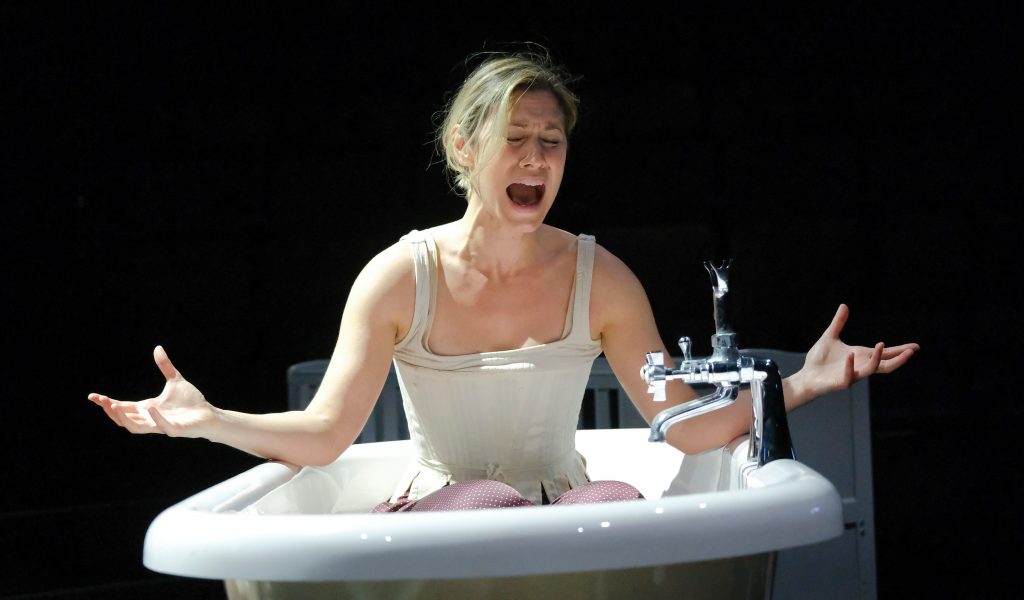
MM: How did you find working with director, Mark Leipacher?
CY: This is my fifth, possibly sixth time working with Mark on stage, so that really says it all. He’s forensic with the text, but artistic with the staging – that’s sort of what you want from any director. He’s given the audience an absolute banquet here.
SS: I’ve worked with Mark a few times before but never from the very beginning of a project. It’s amazing and quite rare to be involved in the early stages of a production as an actor – to workshop the script, inform decisions on design etc. Mark’s focus on collaboration means you have more of a say than usual in the creative process and this is something I’ve found scary at times but has ultimately helped me evolve as an actor.


